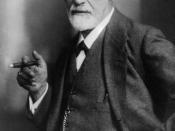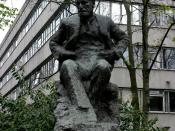Human development is the process of maturing from childhood to adulthood. It is an interdisciplinary field devoted to understanding human constancy and change throughout the lifespan (Berk, 2006). Understanding human development is an essential part of the education process. Knowledge of normal behaviour for specific age groups allows for individualising assessments and planning. Knowledge of several principles, issues and theories help us to understand optimal development and care (Mandleco, 2007). Many theorists, including Sigmund Freud, Albert Bandura and Erik Erikson, have contributed to the human development process, in order to show its importance and significance in our lives as human beings. This essay will outline the human development theories made by the three major theorists above, as well as, providing an indication of the strengths and weaknesses of each theory and its implications for teachers, in particular, and for educators as a whole.
The first major theorist is Sigmund Freud (1856 - 1939).
His "psychoanalytic" theory personality is a cornerstone of modern psychology and human development. His theory proposed that we are driven by emotions and motives of which we are unaware of. His theory was built on the premise that unconsciousness needs or drives especially sexual, and other biological drives, are the basis of human motivation and personality. Freud constructed this theory on the basis of patients' recollection of early childhood experiences, analysis of dream and specific nature of mental and physical problems and ego development (Casper & Taylor, 1996). Freud emphasized that an individuals' development occurs when he or she undergoes through a number of distinct stages of infant and childhood development. These stages are Oral stage, this is the infant's first relationship with its mother; it is a nutritive one. Then its anal stage, this phase usually occurs from eighteen months to thirty-six months of age. In...


